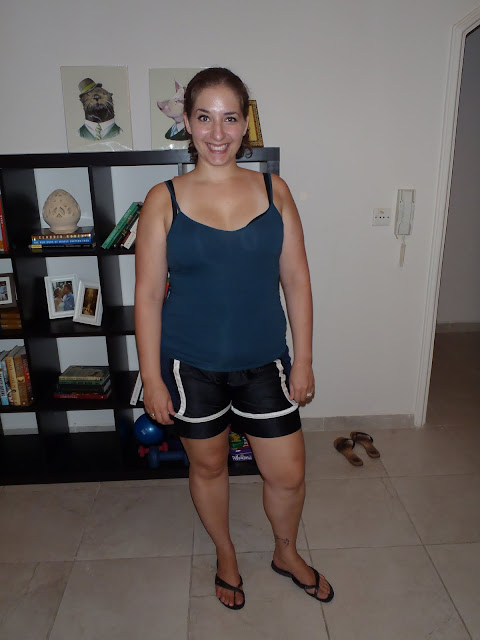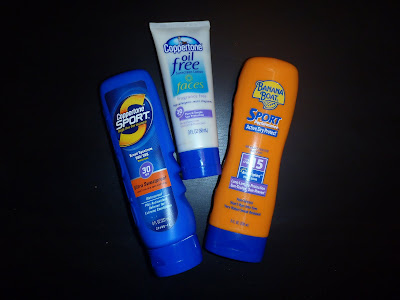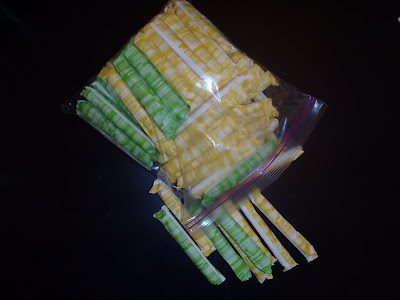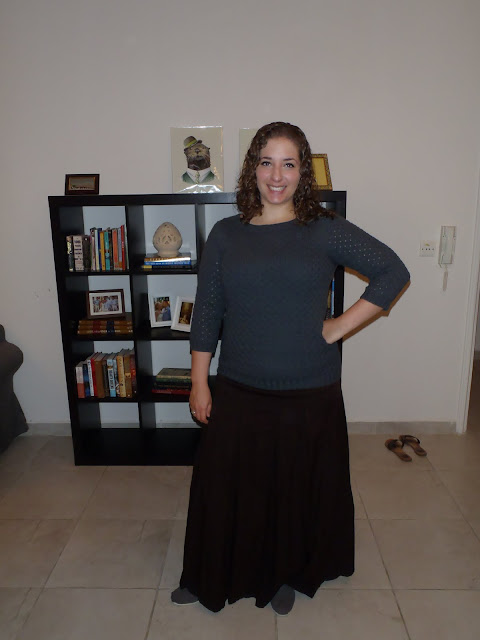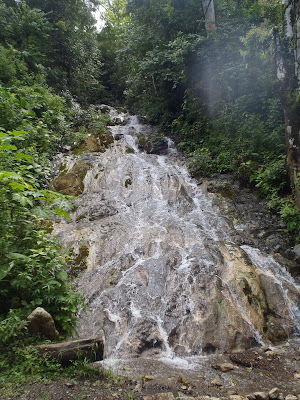As I've mentioned before, I'm teaching social studies in addition to English this year. I'm ok with the change because I'm certified in both areas. The tough part is, in social studies, we aren't using traditional standards, we didn't have a textbook until recently, and we came up with the unit ideas before applying the standards.
Teacher friends will know that this is a little backwards. You're supposed to base your units on the standards and THEN come up with your units and THEN see what your textbooks and other materials have that will help you get the lessons taught.
Needless to say, for that reason, I've been a little (ok, a LOT) stressed out about teaching social studies this year.
However, now that I'm back into the routine and I've started teaching from a fantastic textbook (something I usually hate to do. I rarely like to use the textbook.), I'm remembering why I love teaching social studies to middle schoolers so much. Middle school is when your eyes are really opened to the world around you and you discover there are interesting cultures out there. And this subject is especially rewarding in Saudi Arabia, where my students are painfully naive.
In my 8th grade classes, we're looking at climate change. The textbook we are using has a fantastic approach to the material: all the chapters are set up like a case study. So we're looking at the effects (if any) of global warming on Antarctica. I love that the book has set up the information so the students reach their own conclusions. I'm not teaching global warming, I'm presenting real data from research stations in Antarctica and letting the kids decide.
We haven't been able to get into all that yet, though. I've only been able to barely introduce the unit to my classes because the girls are so blown away by what they're learning about Antarctica!
"What about the polar bears?"
"There are no polar bears in Antarctica. Only penguins*. Polar bears are only on or near the North Pole."
"WHAAT?!"
I LOVE IT!
*I understand that penguins are the only large land animals in Antarctica and that there are other, albeit a very few, forms of life on the continent as well. I decided to go with baby steps on this one.
The rough part has been trying to help them understand the facts that aren't in metric measurements. For example, there was one blurb we read that said the lowest temperature ever recorded on Earth was -129F and it was in Antarctica. I paused for a minute to let that sink in and I was met with a room full of pubescent faces that said, "...is that cold?"
Just like I have no concept of how hot 49C is, they didn't know that -129F was REALLY FREAKING COLD! So I quickly hopped on Google and found the conversion.
The reactions I got ranged from "WHOA! Is that even possible?!" to "Teacher, how did you do that so quickly?"
I'm broadening intellectual horizons left and right.
My favorite question so far in the unit has to be, "Teacher, can normal people go to Antarctica?" meaning could people who aren't scientific researchers go. Like tourists. If there's anything these girls understand, it's tourism in foreign lands.
I explained that yes, you can go as a tourist. I explained that you can take a cruise to Antarctica and get off the boat to see the penguins and walk on glaciers and all that stuff. (I know because during my senior year in college, my Assessment and Standards professor spent TWO ENTIRE classes showing us her pictures of her Antarctic vacation. Totally worth the $500 per credit hour my parents were paying her. I was miffed. ...but I guess in the end it did come in handy eventually...I digress).
"Like a cruise?" one of my angels asked.
"Uhm, kind of like a cruise, but it's not luxurious or anything."
"Is it like a Disney cruise?"
"...no. No it's not like a Disney cruise or any kind of cruise any of us have taken. You sleep on a boat in a tiny little room and it's a very small bed. There are only 3 meals a day. No midnight buffets or anything like that."
The whole room murmured a collective "Oohhhh." And they began talking amongst themselves about why anyone in the world would want to go on a cruise like that.
After a little while, another student raised her hand and said, "But teacher, why don't they just build a hotel on Antarctica?"
Haha! She wanted to visit Antarctica, darnit! And should couldn't understand why she would have to give up her usual creature comforts to do it!
I explained that a). Antarctica can only be visited 4 months out of the year, so building a hotel there wouldn't be very economical, b). building a hotel would dramatically change the ecosystem of the entire continent, and that would ruin all the research we're about to study.
"No, but just a small hotel! It doesn't have to be a big one."
Like I said. They are PAINFULLY naive!!
But darnit they're cute when they're learning.
Vicariously yours,
Teacher friends will know that this is a little backwards. You're supposed to base your units on the standards and THEN come up with your units and THEN see what your textbooks and other materials have that will help you get the lessons taught.
Needless to say, for that reason, I've been a little (ok, a LOT) stressed out about teaching social studies this year.
However, now that I'm back into the routine and I've started teaching from a fantastic textbook (something I usually hate to do. I rarely like to use the textbook.), I'm remembering why I love teaching social studies to middle schoolers so much. Middle school is when your eyes are really opened to the world around you and you discover there are interesting cultures out there. And this subject is especially rewarding in Saudi Arabia, where my students are painfully naive.
In my 8th grade classes, we're looking at climate change. The textbook we are using has a fantastic approach to the material: all the chapters are set up like a case study. So we're looking at the effects (if any) of global warming on Antarctica. I love that the book has set up the information so the students reach their own conclusions. I'm not teaching global warming, I'm presenting real data from research stations in Antarctica and letting the kids decide.
We haven't been able to get into all that yet, though. I've only been able to barely introduce the unit to my classes because the girls are so blown away by what they're learning about Antarctica!
"What about the polar bears?"
"There are no polar bears in Antarctica. Only penguins*. Polar bears are only on or near the North Pole."
"WHAAT?!"
I LOVE IT!
*I understand that penguins are the only large land animals in Antarctica and that there are other, albeit a very few, forms of life on the continent as well. I decided to go with baby steps on this one.
The rough part has been trying to help them understand the facts that aren't in metric measurements. For example, there was one blurb we read that said the lowest temperature ever recorded on Earth was -129F and it was in Antarctica. I paused for a minute to let that sink in and I was met with a room full of pubescent faces that said, "...is that cold?"
Just like I have no concept of how hot 49C is, they didn't know that -129F was REALLY FREAKING COLD! So I quickly hopped on Google and found the conversion.
The reactions I got ranged from "WHOA! Is that even possible?!" to "Teacher, how did you do that so quickly?"
I'm broadening intellectual horizons left and right.
My favorite question so far in the unit has to be, "Teacher, can normal people go to Antarctica?" meaning could people who aren't scientific researchers go. Like tourists. If there's anything these girls understand, it's tourism in foreign lands.
I explained that yes, you can go as a tourist. I explained that you can take a cruise to Antarctica and get off the boat to see the penguins and walk on glaciers and all that stuff. (I know because during my senior year in college, my Assessment and Standards professor spent TWO ENTIRE classes showing us her pictures of her Antarctic vacation. Totally worth the $500 per credit hour my parents were paying her. I was miffed. ...but I guess in the end it did come in handy eventually...I digress).
"Like a cruise?" one of my angels asked.
"Uhm, kind of like a cruise, but it's not luxurious or anything."
"Is it like a Disney cruise?"
"...no. No it's not like a Disney cruise or any kind of cruise any of us have taken. You sleep on a boat in a tiny little room and it's a very small bed. There are only 3 meals a day. No midnight buffets or anything like that."
The whole room murmured a collective "Oohhhh." And they began talking amongst themselves about why anyone in the world would want to go on a cruise like that.
After a little while, another student raised her hand and said, "But teacher, why don't they just build a hotel on Antarctica?"
Haha! She wanted to visit Antarctica, darnit! And should couldn't understand why she would have to give up her usual creature comforts to do it!
I explained that a). Antarctica can only be visited 4 months out of the year, so building a hotel there wouldn't be very economical, b). building a hotel would dramatically change the ecosystem of the entire continent, and that would ruin all the research we're about to study.
"No, but just a small hotel! It doesn't have to be a big one."
Like I said. They are PAINFULLY naive!!
But darnit they're cute when they're learning.
Vicariously yours,














